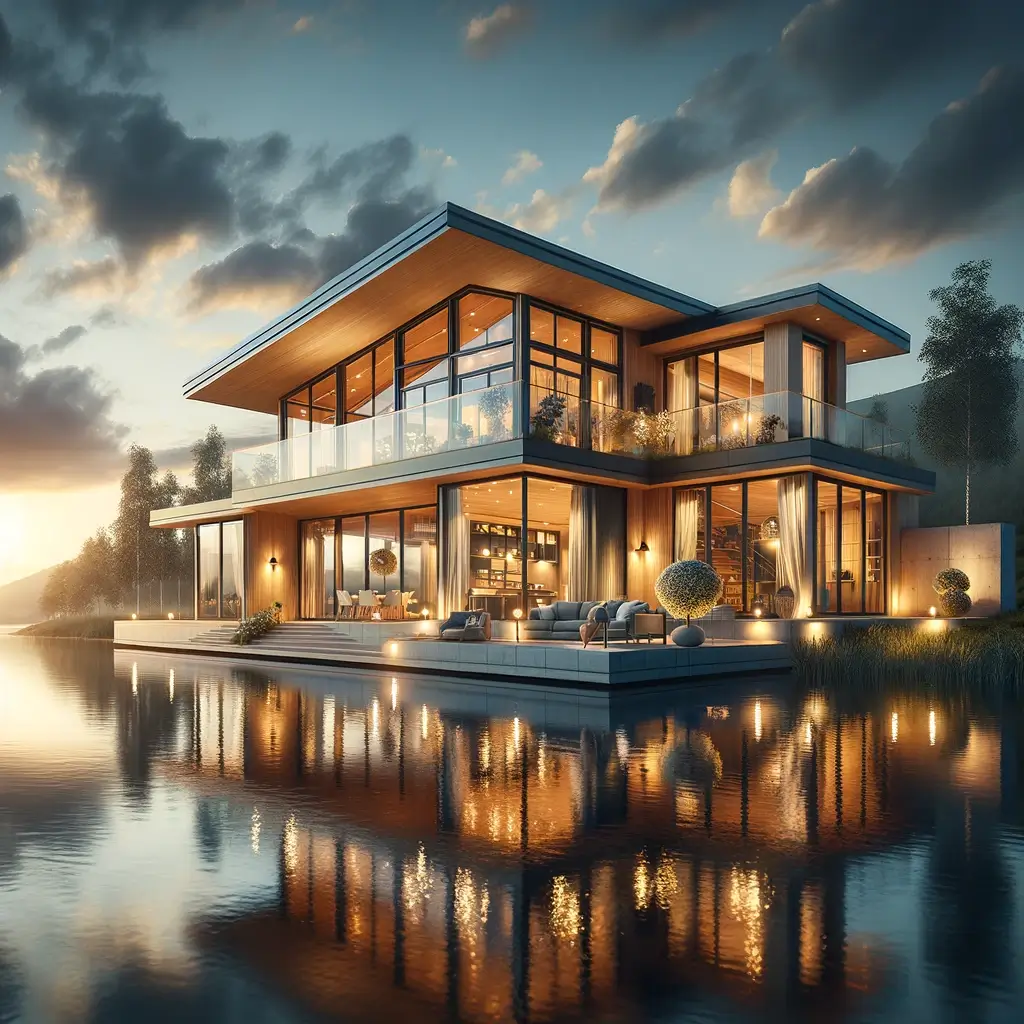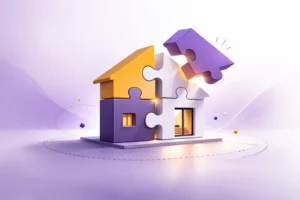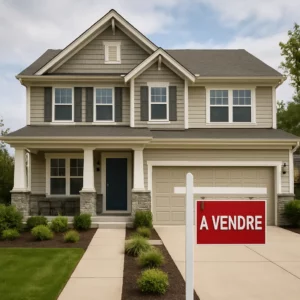Buying a home is a major decision in everyone's life, involving many considerations and choices. In this context, prefabricated homes are emerging as an increasingly popular option, offering a unique blend of quality, customization, and efficiency.
This guide aims to inform your decision by exploring in depth why choosing a prefabricated home might be the ideal choice for you. We'll discuss their distinct advantages, from sustainability to design flexibility, helping you determine if this type of home meets your needs and aspirations.
Before continuing, let me introduce myself, Samir Abdulnour, ing., M.Sc.A, proud owner of a prefabricated house for over 5 years now and author of this guide article! For my part, I do not regret my purchase at all and I am very satisfied with the look, comfort and quality of my house. If you are interested, consult our article on the cheapest prefabricated models in Quebec!
Why choose a prefabricated house?
Manufactured homes offer a distinct set of benefits that meet the diverse needs of today's homeowners.
First, the financial aspect. These homes are often more affordable than their traditional counterparts, without compromising the quality of your home.
Next, durability is a major plus. Built with robust materials and designed to last, they defy weather conditions and time.
Construction time is also a crucial advantage. Factory prefabrication allows for a faster construction process, reducing lead times and associated costs.
Additionally, energy efficiency is often higher thanks to modern construction techniques and the use of quality insulating materials.
Finally, customization is a strong point. Design and configuration options are vast, allowing homeowners to create a home that truly reflects their personal tastes and needs.
To summarize the advantages of prefabricated houses in a visual and concise way, here is a summary table:
| Advantage | Short Description |
|---|---|
| Cost | More affordable, optimal budget control. |
| Sustainability | Robust materials, climate resistance. |
| Construction Time | Fast construction, reduced time and costs. |
| Energy Efficiency | High energy performance, quality insulation. |
| Personalization | Wide choice of design and configuration. |
Decision Guide: Choosing Between a Prefabricated and a Traditional Home
When it comes to choosing between a manufactured home and a traditional home, it's crucial to make an informed decision based on your specific needs, budget, and lifestyle preferences.
This decision guide is designed to help you navigate these key considerations, asking the right questions and comparing the benefits of each construction type.
Decision-making process
- Budget and Costs
- What is your budget?
- If limited or fixed → Prefabricated (cheaper, controlled costs).
- So flexible and high → Traditional (more customization, variable costs).
- What is your budget?
- Construction Time
- Do you have a tight deadline to move in?
- If needed quickly → Prefabricated (faster construction).
- If flexible deadline → Traditional (longer deadline, depends on conditions).
- Do you have a tight deadline to move in?
- Personalization
- How much do you want to personalize your home?
- If specific customization → Traditional (more options).
- If standard customization → Prefabricated (limited but effective options).
- How much do you want to personalize your home?
- Sustainability and Energy Efficiency
- Are energy efficiency and sustainability priorities?
- If yes → Prefabricated (sustainable materials, energy efficiency).
- If less priority → Traditional (varies depending on the construction).
- Are energy efficiency and sustainability priorities?
- Location and Terrain
- Where is your land located?
- If difficult or remote terrain → Prefabricated (easy to transport and assemble).
- If land is accessible and without constraints → Traditional (more flexibility).
- Where is your land located?
By evaluating your personal, financial, and practical priorities, as well as your preferences for customization and sustainability, you will be better equipped to make a decision that best suits your needs and lifestyle.
Lifespan and Maintenance
One of the most important aspects to consider when purchasing a home is its durability and maintenance requirements. Manufactured homes, with their modern construction and quality materials, offer excellent longevity, often comparable to or even superior to that of traditional homes.
Sustainability :
- Prefabricated homes are built in a factory in a controlled environment, reducing the risk of construction errors and ensuring consistent quality.
- The use of advanced materials and precision assembly contribute to a strong and durable structure.
Interview :
- Prefabricated homes generally require less maintenance than traditional homes. Thanks to the use of modern materials, they are more resistant to the elements, reducing the need for frequent repairs.
- The construction techniques and materials used in manufactured homes are often designed to be low-maintenance, which can result in long-term savings of time and money.
In short, choosing a prefabricated home can be a wise investment in terms of durability and maintenance. With quality construction and durable materials, these homes are designed to last while minimizing the need for regular maintenance.
Ecological advantages of prefabricated houses
The environmental impact of prefabricated homes is significantly reduced due to several factors. First, their factory construction minimizes construction waste and carbon footprint, as materials and resources are managed more efficiently.
Second, prefabricated homes are often designed with an emphasis on energy efficiency, using sustainable materials and quality insulation, which reduces energy consumption for heating and cooling.
Finally, the use of energy-efficient technologies and environmentally friendly materials contributes to a more sustainable and ecological home.
These features make prefabricated homes not only economical, but also beneficial to the environment.
Key points summarized
- Eco-responsible construction: 🏗️
- Factory vs. Construction Site: Less waste, more efficiency.
- Materials Management: Optimized use, less waste.
- Energy Efficiency: 💡
- Superior Insulation: Keeps heat in, reduces energy costs.
- Sustainable Materials: Increased longevity, reduced impact.
- Green Technologies: 🌿
- Eco-Tech: Integration of advanced energy solutions.
- Respect for the Environment: Smaller carbon footprint, greener living.
Conclusion
In conclusion, prefabricated homes represent a modern, economical, and environmentally friendly housing option. They offer significant advantages in terms of cost, durability, energy efficiency, customization, and environmental impact. This combination of features makes prefabricated homes a wise choice for those looking for a home that is practical, customizable, and environmentally friendly.





